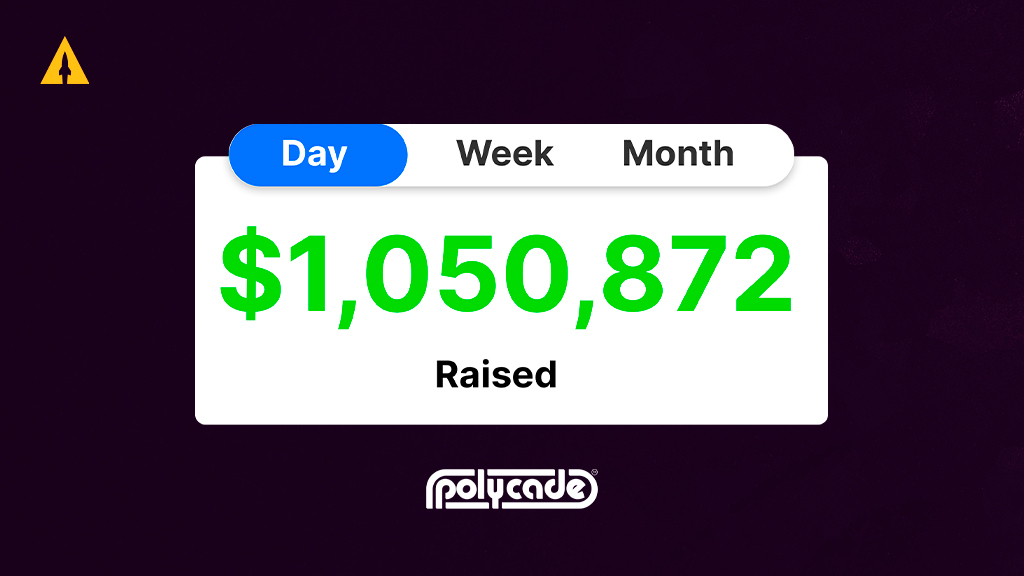Kickstarter is a prominent platform that operates within the creative industries. It has become one of the leading crowdfunding websites, connecting project creators with potential supporters all over the world. The concept behind Kickstarter is based on the idea of crowdfunding, allowing individuals, startups, and organizations to raise funds for their projects by appealing to a large number of people.
Contents
Understanding the Concept of Kickstarter
At the heart of Kickstarter is the practice of crowdfunding, which is a method of raising money for a project by collecting small contributions from a large group of people. This approach taps into the power of collective support and allows individuals to directly contribute to ideas and projects that resonate with them.
Kickstarter’s unique business model sets it apart from traditional funding methods. Instead of relying on a few investors or granting agencies, Kickstarter offers a platform for creators to showcase their projects to potential backers. This democratized approach enables anyone with a promising idea to seek support and brings together communities of passionate individuals who are eager to contribute to the success of innovative ventures.
One of the key advantages of Kickstarter is the ability to connect creators with a diverse range of backers. This means that projects from various fields, such as technology, art, music, film, and design, can all find a home on the platform. The wide array of projects available for support ensures that there is something for everyone, no matter their interests or passions.
When a creator decides to launch a project on Kickstarter, they must provide a detailed description of their idea, including its purpose, goals, and potential impact. This information helps potential backers understand the project’s value and decide whether they want to contribute. Additionally, creators have the opportunity to showcase their previous work, credentials, and any prototypes or mock-ups they have developed. This transparency builds trust and confidence among backers, increasing the likelihood of successful funding.
Once a project is live on Kickstarter, creators have the opportunity to engage with their backers through regular updates, comments, and even rewards. These interactions create a sense of community and involvement, as backers feel like they are part of the project’s journey. Creators can share behind-the-scenes insights, progress reports, and even invite backers to provide feedback or suggestions. This level of engagement not only strengthens the bond between creators and backers but also fosters a supportive environment for future projects.
Another significant aspect of Kickstarter is the all-or-nothing funding model. This means that a project must reach its funding goal within a specified timeframe, typically 30 days, in order to receive any funds. If the goal is not met, no money is collected, and backers are not charged. While this may seem like a risky approach, it actually incentivizes creators to set realistic funding goals and motivates backers to spread the word and rally support. This model ensures that projects have a higher chance of success and minimizes the risk for both creators and backers.
Furthermore, Kickstarter has become more than just a funding platform; it has evolved into a hub for innovation and creativity. The platform has helped launch countless successful projects that have gone on to make a significant impact in their respective industries. From groundbreaking technological inventions to critically acclaimed films and albums, Kickstarter has played a pivotal role in bringing these ideas to life.
In conclusion, Kickstarter’s crowdfunding model has revolutionized the way projects are funded, allowing creators to directly connect with backers and build a community around their ideas. The platform’s commitment to democratization, transparency, and engagement has made it a go-to destination for individuals looking to support innovative ventures and be part of something bigger than themselves.
Kickstarter’s Position in the Tech Industry
Technology plays a significant role in the success and operation of Kickstarter. The platform leverages the digital landscape to connect creators with backers from all corners of the globe. Through Kickstarter, creators can present their tech-related projects, ranging from innovative gadgets and software solutions to groundbreaking inventions and prototypes.
Role of Technology in Crowdfunding
Technological advancements have revolutionized how crowdfunding operates. With the click of a button, individuals can browse through an extensive range of projects, pledge their support, and become an integral part of the journey. This accessibility allows backers to be connected to the projects they support, fostering a sense of involvement and community.
Kickstarter’s Influence on Tech Startups
Kickstarter has had a profound impact on the tech startup scene. It has provided a platform for fledgling companies to showcase their ideas, generate buzz, attract investors, and build a following. By presenting their projects on Kickstarter, tech startups can gauge the market interest, secure funding, and gain valuable feedback from potential users.
Kickstarter’s Impact on the Creative Industry
While Kickstarter has a significant presence in the tech industry, it also caters to the creative sector, supporting artists, musicians, filmmakers, and designers seeking funding for their innovative and imaginative projects.
Funding Creative Projects through Kickstarter
Kickstarter grants creators the opportunity to pitch their artistic endeavors directly to a community of supporters who are passionate about the arts. Artists can showcase their work, share their vision, and receive pledges to fund their projects. This allows for greater independence and creative control, empowering artists to bring their ideas to life.
The Success Stories of Creative Industries on Kickstarter
Kickstarter has been the catalyst for numerous success stories in the creative industry. From indie films that have gained worldwide recognition to musicians who have produced their albums independently, Kickstarter has provided a platform for talented individuals to reach a global audience and bring their artistic visions to fruition.
Kickstarter’s Role in the Entertainment Industry
The entertainment industry, encompassing film, music, and more, has seen a significant shift with the rise of crowdfunding platforms like Kickstarter.
Crowdfunding in Film and Music Production
Kickstarter has transformed how films and musical projects are financed. Instead of relying solely on traditional funding sources, filmmakers and musicians can now engage their fan base directly, creating a sense of community and actively involving backers in the production process. This approach not only provides financial support but also generates buzz and anticipation for upcoming releases.
How Kickstarter is Changing the Entertainment Industry
Kickstarter’s influence on the entertainment industry goes beyond funding projects. It has shifted the power dynamics, allowing artists to have greater control over their creative endeavors and opening doors for stories that may not fit the traditional molds. Kickstarter has also given audiences the opportunity to support diverse, independent, and unique projects that may not have garnered mainstream attention.
Kickstarter’s Influence on the Retail and Manufacturing Industries
Kickstarter’s impact extends beyond the realm of creative and entertainment industries, reaching into the retail and manufacturing sectors.
Crowdfunding for Product Development
Kickstarter provides a platform for entrepreneurs and small businesses to launch and showcase their products. By crowdfunding their projects, creators can validate market demand, secure funding for production, and build a customer base before the product even hits the market. This approach has revitalized the retail and manufacturing industries, allowing for more innovation and niche products to thrive.
Kickstarter’s Effect on Consumer Goods Industry
The rise of Kickstarter has disrupted the consumer goods industry, fostering an environment where independent manufacturers can thrive. By enabling consumers to support creative, eco-friendly, and socially responsible projects, Kickstarter assists in shaping a more conscious marketplace. It offers an alternative to mass-produced goods, highlighting the importance of quality, sustainability, and individuality.
In conclusion, Kickstarter is at the forefront of the crowdfunding movement and operates within multiple industries. From tech startups to creative ventures, Kickstarter provides a platform for innovators and creators to seek support, funding, and community. Its impact reaches far beyond financing, influencing the way projects are brought to life and empowering individuals to shape the industries in which they operate.



